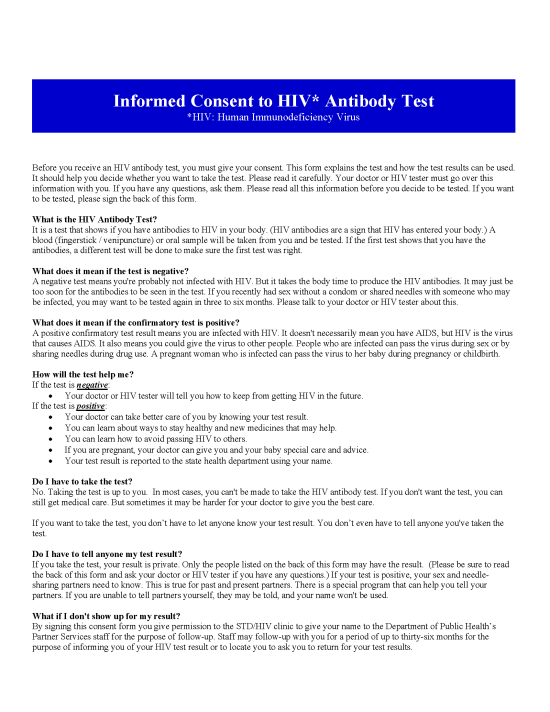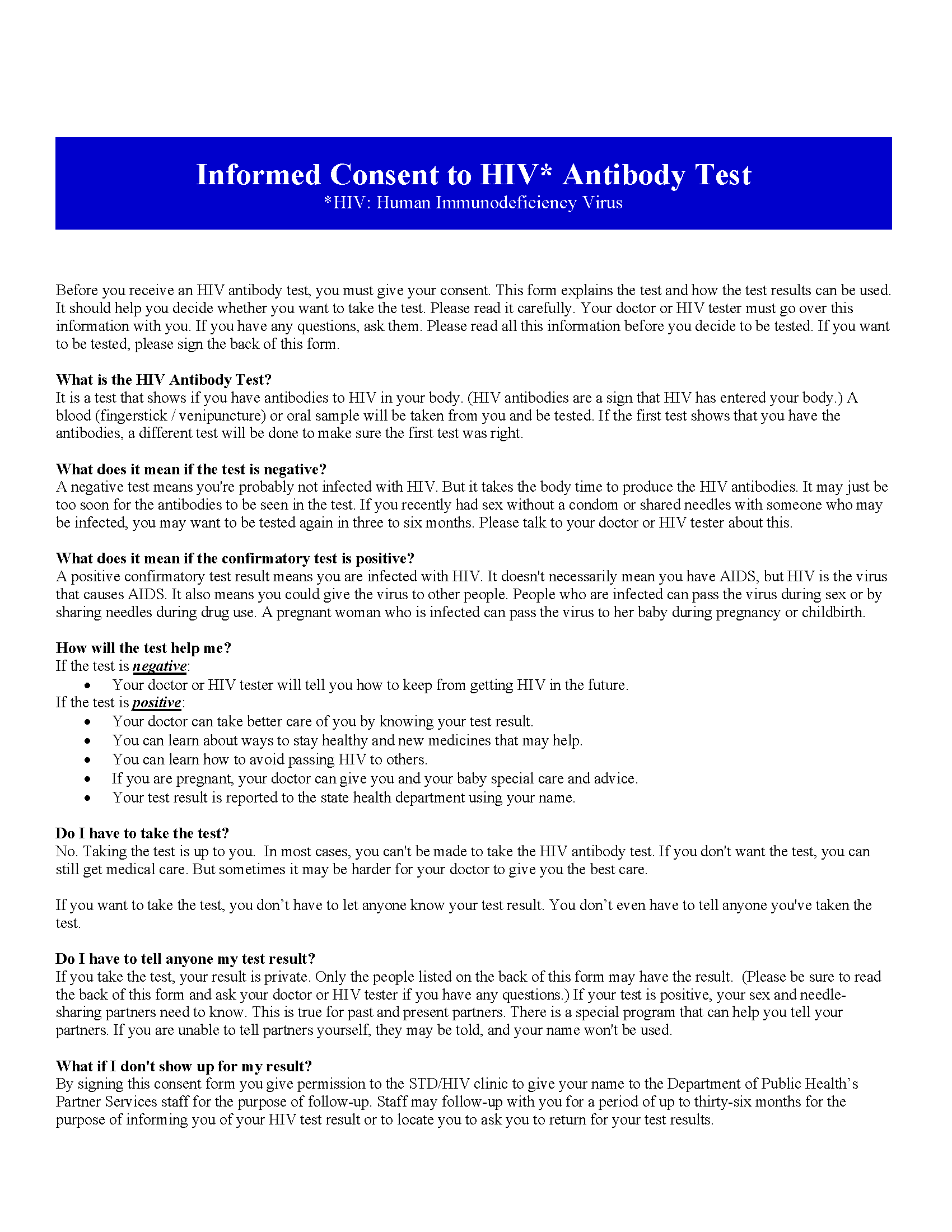Minor Consent
In 32 states, the law explicitly allows minors to consent to an HIV test without the involvement of a parent or legal guardian, with 17 of those states imposing a minimum age for consenting (typically at 12 or 14 years old).[1] The remaining 18 states have varying laws regarding parental involvement.
The Centers for Disease Control and Prevention (CDC) provides a state-by-state breakdown of the applicable minor consent laws.
What Informed Consent for HIV Testing Means
Informed consent for HIV testing is the process where a physician gives patients essential information about the HIV test to ensure they’re making informed decisions about whether to be tested. Below are several key aspects of informed consent for HIV testing.
Purpose of the HIV Test
Part of the informed consent process is making sure the individual understands why they’re being tested, which is to determine whether antibodies to the human immunodeficiency virus (HIV) are present in their body.
Description of the Testing Methods
Describing how the HIV test will be conducted helps the individual assess the potential risk and prepare themselves for any physical discomfort. Since the test is voluntary, the individual can withdraw from testing if they feel uncomfortable providing a sample.
Confidentiality of Results
While the test results are confidential, the consent form explains that certain individuals and entities are legally permitted to access the testing information. For instance, the results may be shared with:
- The medical facility and staff responsible for providing care to the individual or their child.
- The state health department.
- Government programs (such as Medicaid) and insurance companies covering the individual’s health care costs.
- Health care workers who have been exposed to the individual’s blood.
If the individual would like their test results released to any other parties, they will need to provide the facility that conducted the test with a completed medical records release form or a similar document provided by their state’s health department.

